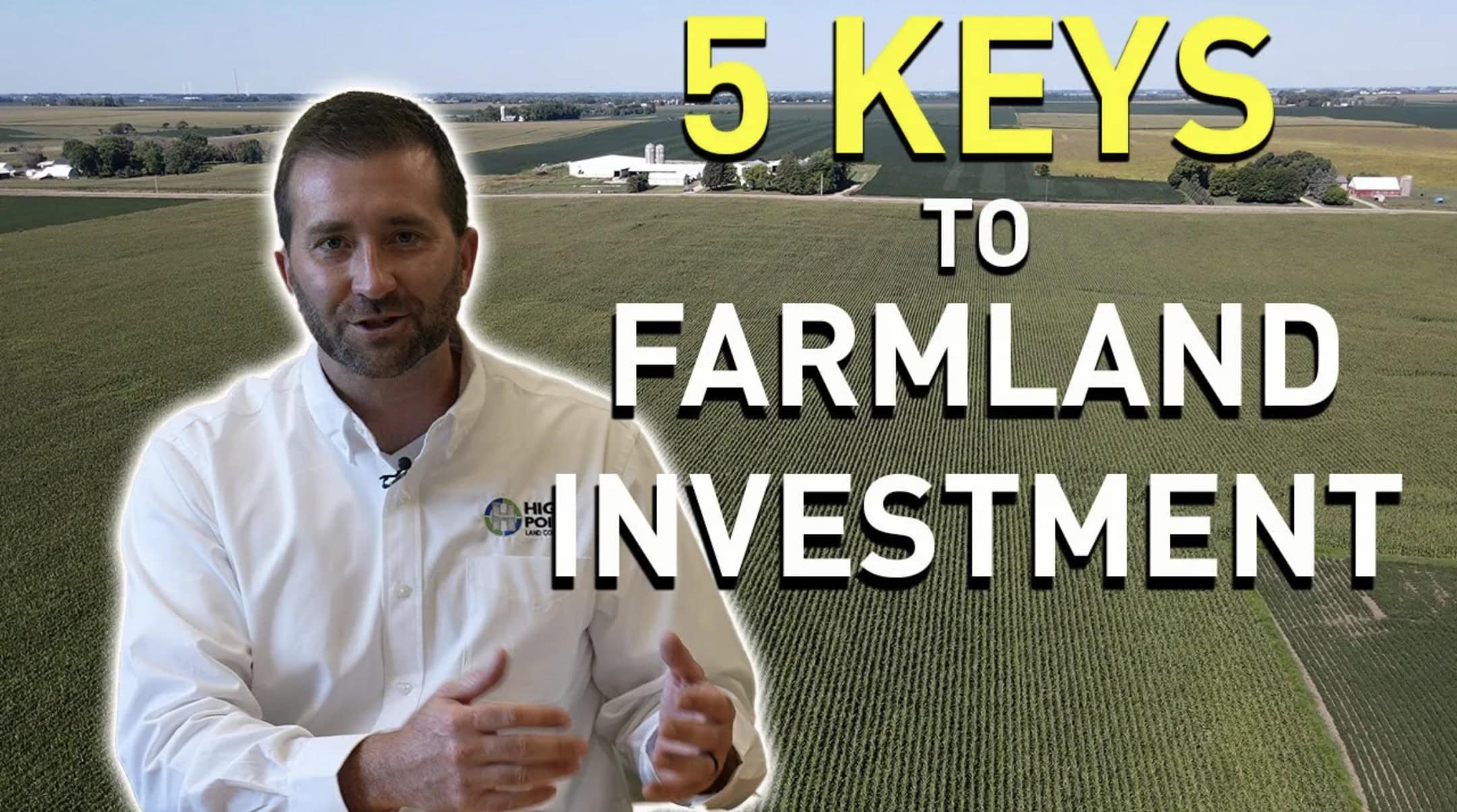The Top 5 Things to Consider When Buying Farmland
By Jacob Hart, High Point Land Company
When it comes to investing in farmland, there are several critical factors to consider. Whether you’re looking to diversify your investment portfolio, reconnect with your agricultural roots, or take advantage of a 1031 exchange, buying farmland requires careful planning and due diligence. In this blog post, I’ll walk you through the top five things to consider when buying farmland, ensuring you make an informed and strategic decision.
Before we dive in, here’s an important disclaimer: I’m not a financial advisor, accountant, CPA, or attorney—I’m a real estate broker in several states. My advice is based on our experience in the real estate market, and it’s essential to consult with your financial and legal professionals before making any decisions.
1. Define Your Goal
The first and most important step in buying farmland is to define your goal. Are you looking to diversify your investment portfolio? Do you want to transition from other types of real estate investments into farmland? Or perhaps you grew up on a farm and want to get back to those roots.
Defining your goal will help shape your search and inform your decisions. For instance, if you’re interested in a 1031 exchange, you’ll want to understand the timeline and financial requirements. If you’re looking to own farmland yourself, as opposed to fractional ownership through a fund, that decision will guide your approach and focus. Having a clear goal allows you to narrow down your search area, determine your budget, and set realistic expectations for your investment.
2. Due Diligence
Once you’ve defined your goal, the next crucial step is due diligence. Hiring a professional—such as an experienced land real estate agent or farm manager—is invaluable. A professional who specializes in farmland will have the knowledge and experience necessary to guide you through the complexities of the transaction. They can provide detailed maps showing tile systems, wetlands, soil quality, and future development plans.
Additionally, understanding the local market is vital. Who are the tenants in the area? What are the typical rental rates, and what crops are being grown? Are these crops sustainable and profitable? Due diligence is more than just running numbers; it’s about understanding the long-term viability of the land you’re purchasing.
3. Evaluate the Crops
When considering a farmland purchase, it’s essential to evaluate the types of crops being grown and their market stability. Crops like corn, soybeans, and wheat have been staples in agricultural markets for decades, with strong import and export ties globally. These crops are typically more reliable and provide a steady income stream.
However, be cautious about investing in farmland solely because it offers a high return on investment (ROI) from a new or niche crop. While these crops might promise high returns initially, they may not have the same long-term market stability. It’s essential to consider the sustainability of the crop market and whether it aligns with your long-term investment goals.
4. Assess the Tenants
The quality and stability of tenants can significantly impact your farmland investment. Large, efficient operators often bring stability, but you need to consider their financial health and operational sustainability. What happens if a key tenant faces financial difficulties or goes out of business? Understanding the risks associated with your tenants will help you make informed decisions about the long-term viability of your investment.
Farmland is often seen as a stable asset in an investment portfolio. However, if you rely on high rental rates from tenants, it’s crucial to assess whether those rates are sustainable. Look at the long-term financial health of your tenants and their ability to continue farming profitably.
5. Look for Growth Opportunities
Finally, consider the potential for growth and improvement on the farmland. Are there opportunities to expand the farm, add irrigation, or implement tile drainage systems? These improvements can not only increase the farm’s productivity and yield but also provide tax benefits. Additionally, consider whether the land is suitable for introducing new crops or tenants, which could enhance your ROI.
Growth opportunities are key to maximizing the value of your farmland investment. Farms that need a little work or have room for expansion can offer significant returns over time, making them attractive options for savvy investors.
Final Thoughts
Investing in farmland can be a rewarding and stable addition to your portfolio, but it requires careful planning and due diligence. By defining your goals, conducting thorough research, and understanding the market dynamics, you can make a well-informed decision that aligns with your financial objectives. So remember these five things to consider when buying farmland.
If you found this content valuable, don’t forget to follow, like, and share our YouTube video on this topic. Dive deeper into the details and stay connected for more insights. Watch now:

